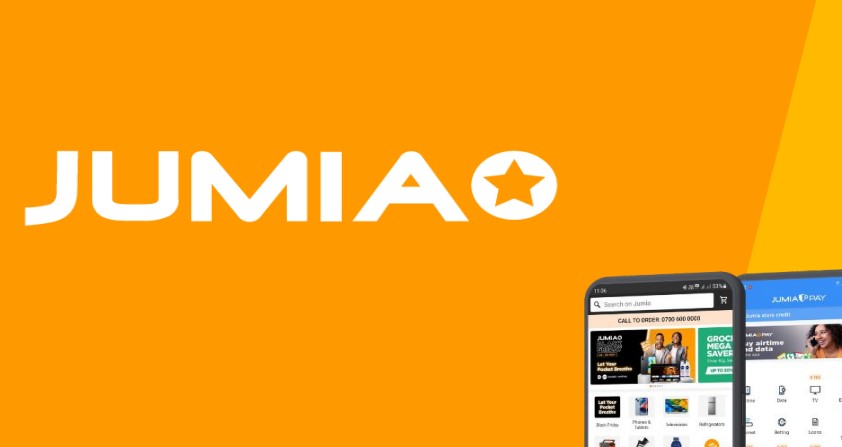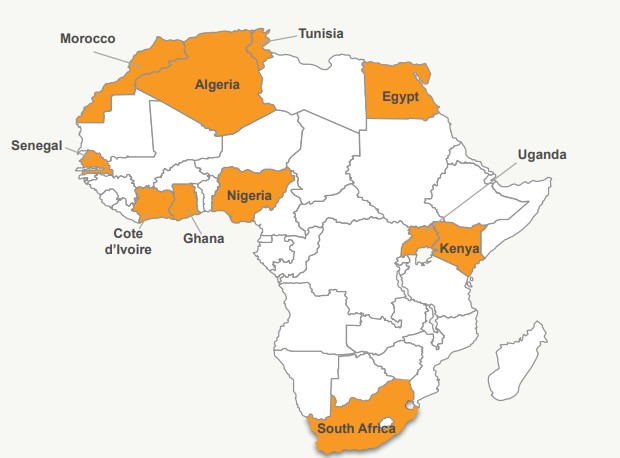
Jumia Technologies AG (NYSE: JMIA) is far from your typical company. While the address is listed in Berlin, Germany, Jumia’s press release for earnings comes out of Lagos, Nigeria. The outfit is an e-commerce platform that operates in Africa, Europe and parts of the Middle East. This was formerly referred to by investors as “The Amazon.com of Africa” when its initial public offering came in 2019 and immediately disappointed shareholders. Then the pandemic hit and e-commerce took off everywhere, and shares briefly soared to over $50…
After its stock crashed from over $50 in 2021 to around $10 by the end of the same year, shares of Jumia drifted lower and stayed under $10 for more than two years. Now, all of a sudden, and after a year-to-date run of to $8.46 as of July 8, 2024… Jumia is back above $10. Shares of Jumia rose 29.9% to $10.99 on Tuesday, July 9, 2024 with more than 19 million shares trading hands in a single day.
The cause for Jumia’s sharp rise was a key analyst report from Benchmark. Analyst Fawne Jiang issued a new Buy rating on Jumia and she issued a $14.00 price target. Jiang is listed Benchmark’s own bio pages as an equity research analyst covering China Internet and China Consumer — “where she focuses on opportunities within the Internet and consumer sectors in China with an emphasis on travel & lodging, e-commerce, internet, and new media.”
Tactical Bulls would remind all readers that investors should never buy or sell a stock solely on an individual analyst report as the sole reason for investing. Investors of all sizes often have access to the same information and that should be the determining factor for investing rather than someone else’s opinion. In this case, the opinion from Benchmark’s analyst warranted massive upside.
If the Benchmark report comes to fruition that implied an upside of 65% from the prior $8.46 closing price. Again, a 29.9% gain on 19 million shares to back above $10.00 is an impressive gain. And Jumia shares were already up about 140% YTD from its December 29, 2023 closing price of $3.53.
Jiang believes that Jumia will benefit from a demographic transformation over the coming years. She even referred to a potential multi-decade e-commerce growth because of its status as a leading e-commerce platform throughout Africa. She also noted that Jumia’s services enable affordability and should drive sustainable growth in vastly underserved markets.
Jumia’s secular growth opportunities for e-commerce and covering a gross under-served Africa are what make it a potential “tactical” play. Whether the company’s past faults get in the way or come back into play simply is not yet known. The company gave its own recent investor presentation for those who want to see what the company itself was showing investors. That presentation showed gross merchandise value transactions of about $750 million in 2023, with the company’s revenue being $186.4 million.
Jumia’s earnings release from May highlighted some significant problems that U.S. companies may not worry about as much. On top of inflationary pressures in general, Jumia noted that it faced significant currency devaluations in some of its largest markets. This, in turn, hurt general trends in purchasing power and in the supply chain. Jumia noted that its ability to secure sufficient inventory and to “offer a diversified product assortment at competitive prices” was keeping consumers on its platform. Jumia also referred to, at that time, growth in Nigeria and Ghana and highlighted that the floating Egyptian pound and higher interest rates there brought higher U.S. dollar inflows from foreign investors.
With such a massive stock surge on Tuesday, Jumia’s market cap is now barely back above $1.1 billion. The only other analyst call that has been seen in 2024 was an upgrade from Morgan Stanley to Equal-Weight from Underweight with a $3.60 price target.
The only other time Jumia traded this actively over the last year was a trading volume of almost 14.8 million shares on May 7 when shares rose 17.9% to $6.45.
Some of the same enthusiasm was being touted in 2019 before Jumia shut down in local African markets with widening losses. A former BBC story highlighted its rise and fall, including issued brought about by vocal short sellers and followed by lawsuits alleging fraud.
Jumia’s website calls itself as “the leading pan-African e-commerce platform active across 11 countries…” and noted that its marketplace connects thousands of sellers to millions of consumers with integrated logistics and digital payment services. The image below is where Jumia’s current markets are located:

Categories: Investing